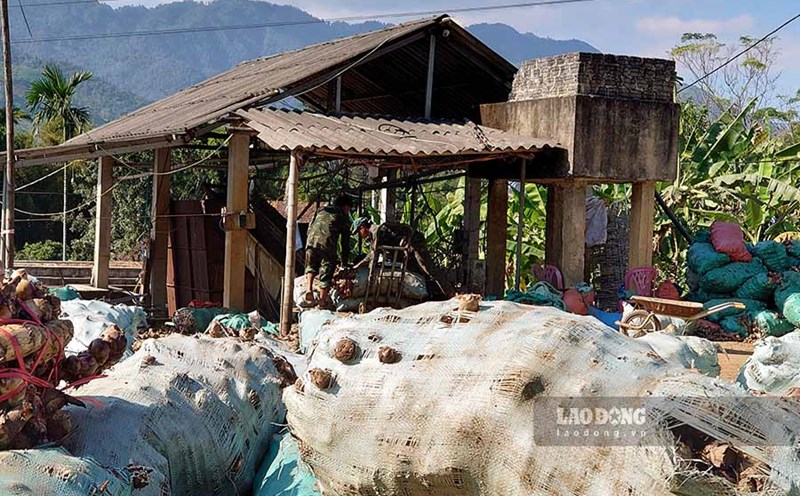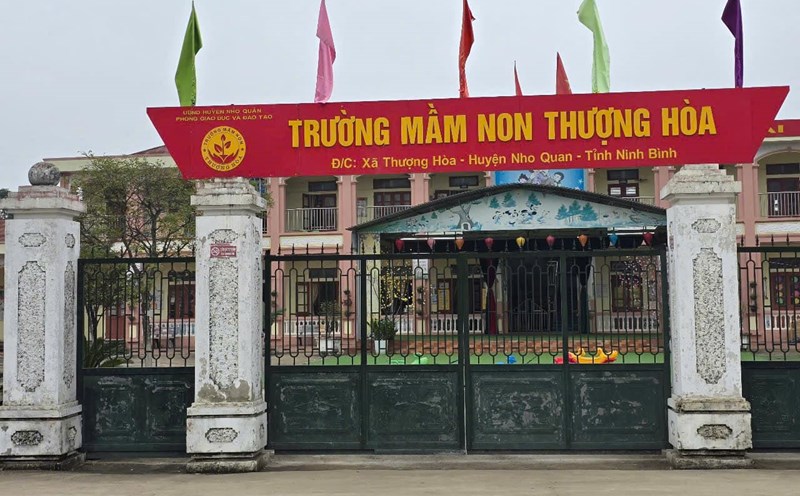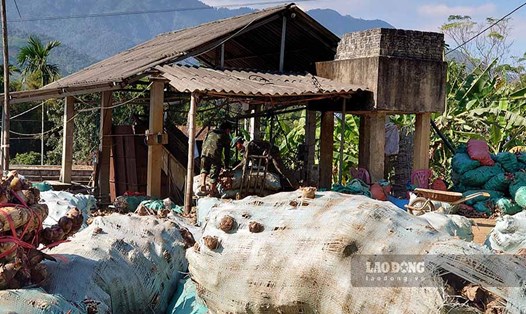Na Tau Commune, Dien Bien Phu City, Dien Bien Province has an area of over 100 hectares, which is considered the largest cassava growing area in the province. However, among the 7 cassava processing facilities over the past many years, none of them have been licensed to operate.
The cassia processing facility, considered the most systematic investment of Mr. Pham Duy Hung's family - Trung Tam village, Na Tau commune, is not yet qualified because of the procedures for converting land use purposes. Meanwhile, the scale of the processing area is up to nearly 2,000m2. The processing capacity is 30 tons of fresh cassia tubers/day.
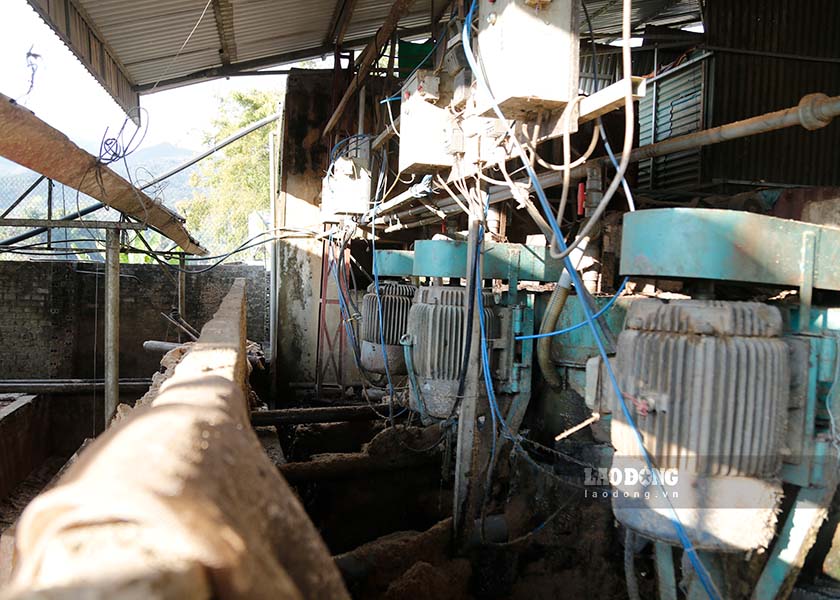
It is known that since 2022, Mr. Hung's family has invested nearly 2 billion VND to build and complete a modern waste processing and treatment process. Currently, the process of processing arrowroot powder here is being carried out in 4 steps: feeding and washing; grinding and filtering starch; settling and separating water; recovering products and packaging.
To minimize the impact on the environment and develop sustainably, Mr. Hung's family has invested in building a centralized wastewater treatment system with a capacity of 300m3/day and night. With a construction area of nearly 1,000m2 (accounting for over 50% of the total area), this project is fully equipped with treatment tanks such as equalization tanks, anaerobic tanks, aerobic tanks, biological sedimentation tanks, etc. to ensure optimal treatment efficiency.
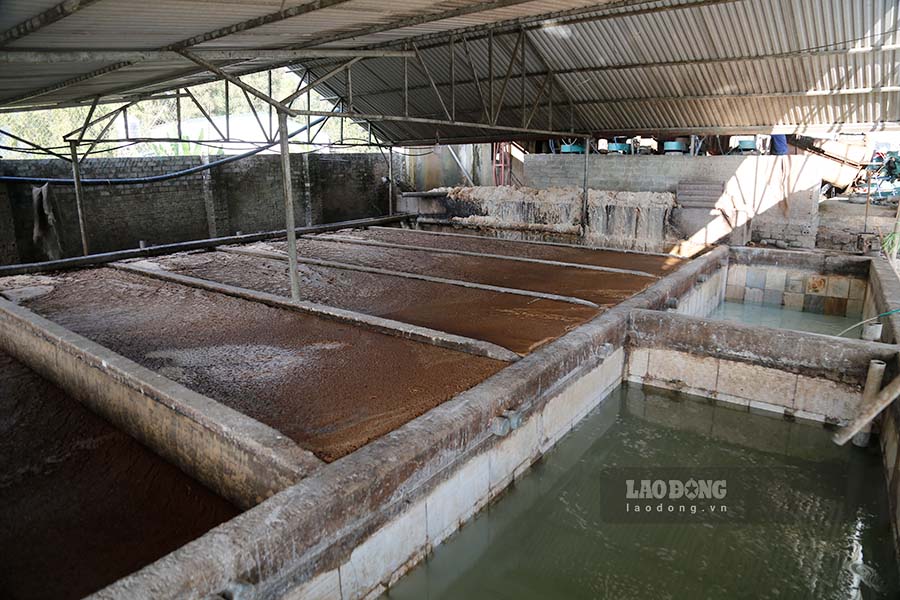
Mr. Hung said that to produce 1 ton of arrowroot powder, about 3m3 of clean water is needed. With the current production capacity of 30 tons of fresh arrowroot tubers/day, the amount of wastewater generated is up to 90m3/day.
Wastewater after being pre-treated by a 3-compartment septic tank is combined with production wastewater and sent to a centralized treatment system. In particular, this facility also makes the most of waste sources. Instead of being discharged directly into rivers and streams, waste is pressed and used to make organic fertilizer.
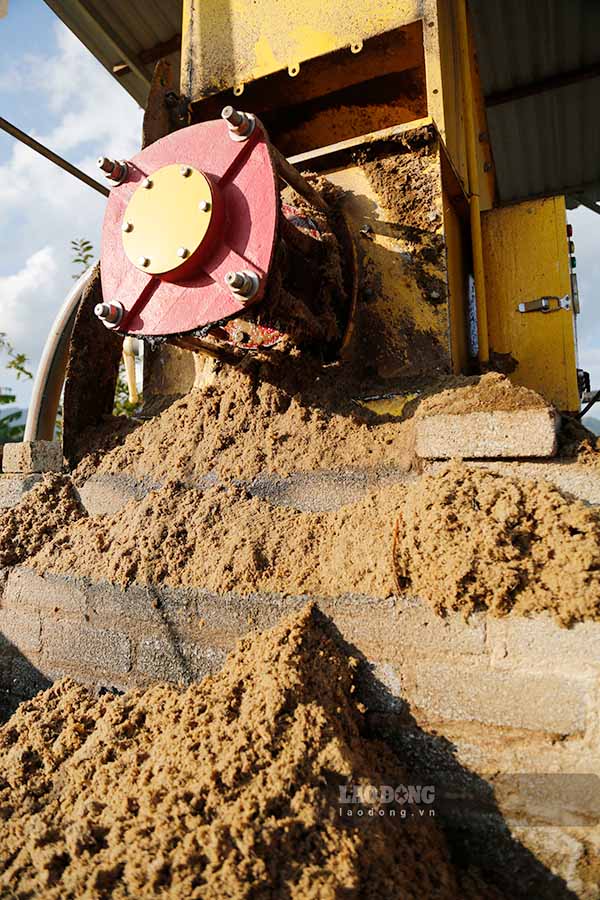
Utilizing waste not only helps protect the environment but also brings economic efficiency, contributing to reducing production costs. However, cassava depends on the season, so the production time only takes place about 2.5 months in a year, the remaining nearly 10 months must be stopped.
“Now the government requires the conversion of agricultural land to commercial land. While we only produce crops for about 2 months each year, spending a huge amount of money to complete land conversion procedures is impossible.”
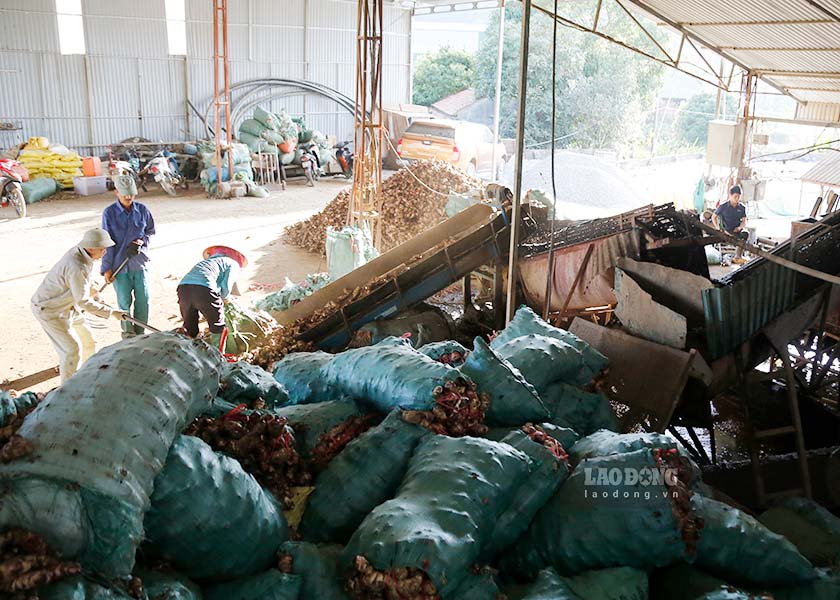
Speaking to Lao Dong Newspaper, Mr. Lo Van Toan - Chairman of Na Tau Commune People's Committee - said that in order to ensure the preliminary processing of arrowroot powder according to the procedures and instructions of the Department of Natural Resources and Environment, the commune has repeatedly proposed the city to arrange a location for the facilities to operate centrally. However, this plan has not yet been implemented, while it is very difficult for processing facilities to comply with regulations.
"Currently, we continue to require processing facilities to complete all paperwork procedures and convert agricultural land use purposes to production and business land according to regulations," said Mr. Toan.



